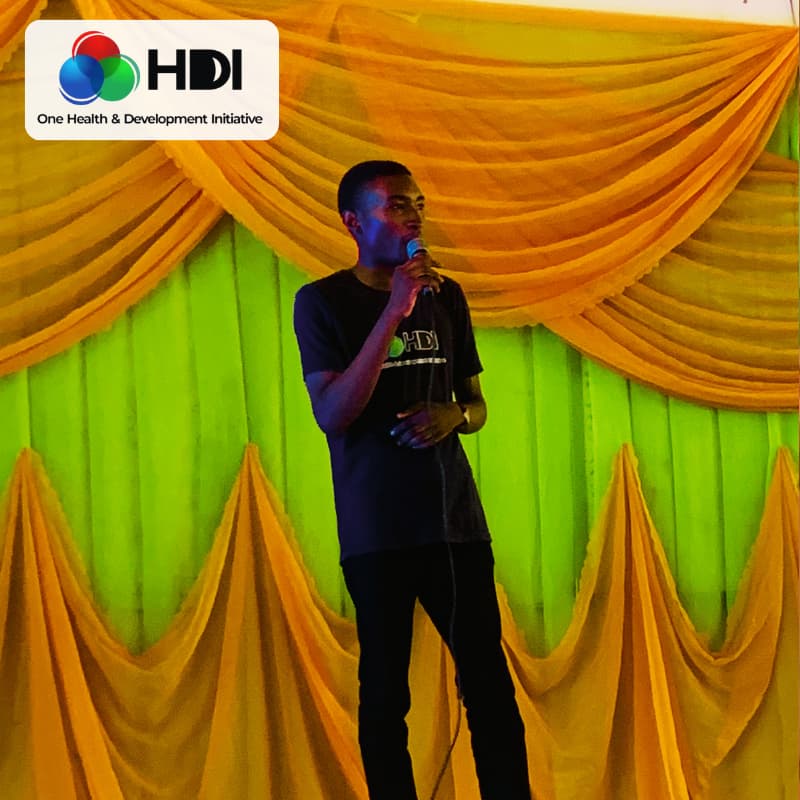
The youth population is a significant force to reckon with to drive and promote sustainable societal development. Armed with this truth, we have been playing a keen role in ensuring youth inclusiveness and engagement. This has been through driving meaningful One Health and related discussions, providing mentorship, and creating platforms for youths to be trained and make noteworthy contributions to the field. All these are only a part of our numerous activities and involvement in promoting the One Health cause in Nigeria, and beyond.
Our commitment to building the capacity of these young and enthusiastic professionals and students informed our recent engagement at the student orientation program organised by the Nigerian Association of Microbiology Students, Adekunle Ajasin University, Akungba-Akoko, Ondo State, Nigeria. Thanks to our research assistant, Damilola Adesuyi, who facilitated the introduction of the One Health concept to the students. The seminar aimed at empowering the next generation of leaders in health and development by fostering and promoting One Health knowledge amongst the participants.
This seminar, which was held on June 9, 2023, was attended by 250 participants, mainly first-year undergraduate students. The session started with a pre-session assessment to ascertain the participants’ knowledge and awareness of the One Health concept. Damilola then provided a basic explanation of the One Health concept, its core principles, feasibility, and potential for providing an integrated approach to solving health issues such as Antimicrobial Resistance (AMR), emerging and re-emerging diseases, zoonosis, and climate change.
To drive home the point, Damilola further emphasised the effectiveness of One Health by explaining how public health issues are intertwined across the human, animal, and environmental ecosystems using malaria and rabies as case studies. This was consequently followed by a discourse on the need for microbiologists to be involved in the research and implementation of One Health strategies and the triad One Health areas i.e. human health, animal health, and environmental health. He highlighted that for young professionals to build a career in the field, they need to define their career interests, research those interests, take professional courses, seek for right mentorship and network, advocate, and volunteer at One Health organisations.
A highlight also worthy of note from the seminar, especially for us as an organisation, was the display of knowledge of the One Health concept by one of the participants who is a member of the OHDI One Health Club (a platform for young One Health enthusiasts to build their capacity in One Health promotion). This is a testament to our contribution and targeted efforts to fostering and promoting One Health knowledge and capacity-building.
To end it here, we are glad that this engagement enhanced the students’ understanding of the core concept and principles of One Health. In addition, their passion for promoting a more sustainable future was kindled, and meaningful conversation was sparked. All this is expected to be the basis for future discussions and actions on bringing about good health and well-being, through constant reflection on the interaction between the health of humans, animals, and the environment. As an organisation, our contribution to development mainly depends on improving health outcomes for people, animals, and the environment.





